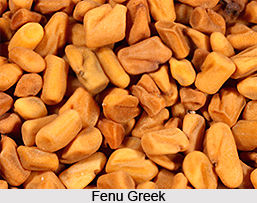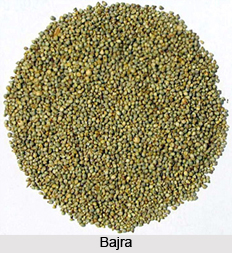 Sprouts in Naturopathy are regarded as the freshest and most nourishing of all vegetables in human diet. By a process of natural transmutation, sprouted food acquires immensely improved digestibility and nutritional qualities when compared to non sprouted embryo from which it derives. Sprouts supply all the necessary vitamins and minerals. They should form a very important component of the diet. Sprouting requires no constant care but only an occasional sprinkling of water. All edible grains, seeds and legumes can be sprouted.
Sprouts in Naturopathy are regarded as the freshest and most nourishing of all vegetables in human diet. By a process of natural transmutation, sprouted food acquires immensely improved digestibility and nutritional qualities when compared to non sprouted embryo from which it derives. Sprouts supply all the necessary vitamins and minerals. They should form a very important component of the diet. Sprouting requires no constant care but only an occasional sprinkling of water. All edible grains, seeds and legumes can be sprouted.
Generally the following are used for sprouting:
Grains: Wheat, bajra, maize, ragi and barley.
Seeds: Alfalfa seeds, carrot seeds, coriander seeds, radish seeds, fenugreek seeds, pumpkin seeds and muskmelon seeds.
Legumes: Mung, Bengal gram, groundnut and peas.
Alfalfa is the king of all sprouts. It is a vital component of human insulin. Apart from minerals, alfalfa is also a rich source of vitamins A, B, C, E and K and amino acids. Sesame seeds are another good source of nourishment. They include all the indispensable amino acids in their 20 per cent protein content and higher concentration of calcium than milk. They are high in lecithin, unsaturated fats, vitamin E and vitamin B complex, besides other live nutrients.
How to Sprout
 As a first step, a high quality variety of seeds should be used for sprouting. It should be made sure that the seeds, legumes or grains are of the sproutable type. Soyabeans do not sprout well as they frequently become sour. It is wise to use seeds which are not chemically treated as this slows down the germination rate. The seeds should be washed carefully and then soaked overnight in a jar of pure water. The jar should be enclosed with cheesecloth or wire screening. The period of soaking will depend upon the size of the seed. Small seeds are soaked for five hours, medium size for eight hours and beans and grains for ten to twelve hours. On the next morning, the seeds should be rinsed and the water should be drained off. Not more than one fourth of the jar should be filled with the seeds for sprouting. Soaking makes the seeds, grains or legumes fatty, pulpy and full of water. It should, as a result, be ensured that the jar has enough room for the seeds to expand during sprouting. The seeds should be rinsed and water drained off three times every day till they are ready to eat. The seeds will germinate and become sprouts in two or three days from commencement of soaking, depending on temperature and humidity.
As a first step, a high quality variety of seeds should be used for sprouting. It should be made sure that the seeds, legumes or grains are of the sproutable type. Soyabeans do not sprout well as they frequently become sour. It is wise to use seeds which are not chemically treated as this slows down the germination rate. The seeds should be washed carefully and then soaked overnight in a jar of pure water. The jar should be enclosed with cheesecloth or wire screening. The period of soaking will depend upon the size of the seed. Small seeds are soaked for five hours, medium size for eight hours and beans and grains for ten to twelve hours. On the next morning, the seeds should be rinsed and the water should be drained off. Not more than one fourth of the jar should be filled with the seeds for sprouting. Soaking makes the seeds, grains or legumes fatty, pulpy and full of water. It should, as a result, be ensured that the jar has enough room for the seeds to expand during sprouting. The seeds should be rinsed and water drained off three times every day till they are ready to eat. The seeds will germinate and become sprouts in two or three days from commencement of soaking, depending on temperature and humidity.
Benefits of Sprouts
There is a remarkable increase in nutrients in sprouted foods when compared to their dried embryo. In the process of sprouting, the vitamins, minerals and protein increase significantly with corresponding reduce in calories and carbohydrate content. These comparisons are based on equivalent water content in the foods measured. Analysis of dried seeds, grains and legumes shows a very low water content. But this increases up to tenfold when the same food is converted into sprouts. For precise comparison each must be brought to a common denomination of equal water content to assess the exact change brought in nutritional value. The increase in protein accessibility is of great importance. It is a valuable indicator of the enhanced nutritional value of a food when sprouted.
The remarkable increase in sodium content supports the analysis that sprouted foods offer nutritional qualities. Sodium is vital to the digestive process within the gastro-intestinal tract and also to the elimination of carbon dioxide. Dried seeds, grains and legumes do not contain noticeable traces of ascorbic acid, yet when sprouted, they divulge quite important quantities which are significant in the body`s capacity to metabolise proteins. The countless increase in ascorbic acid derives from their absorption of atmospheric elements at the time of growth. Sprouts have quite a lot of other benefits. They contribute food in predigested form, that is, the food which has already been acted upon by the enzymes and made to digest without difficulty.
Sprouts are an enormously inexpensive method of obtaining a concentration of vitamins, minerals and enzymes. They have in them all the component nutrients of fruits and vegetables and are `live` foods. Eating sprouts is the safest and best way of getting the advantage of both fruits and vegetables without contamination and harmful insecticides.
It should, however, be ensured that seeds and dried beans are purchased from a store where they are fresh, unsprayed and packaged as food. Seeds that are packaged for planting purposes may contain mercury compounds or other toxic chemicals.




















